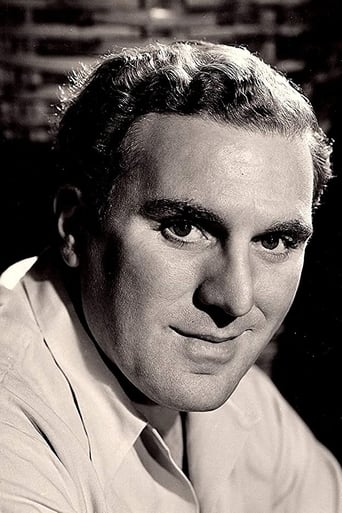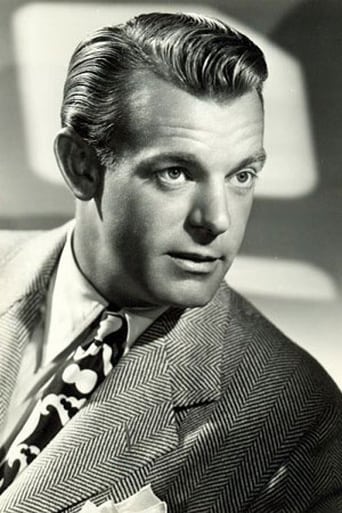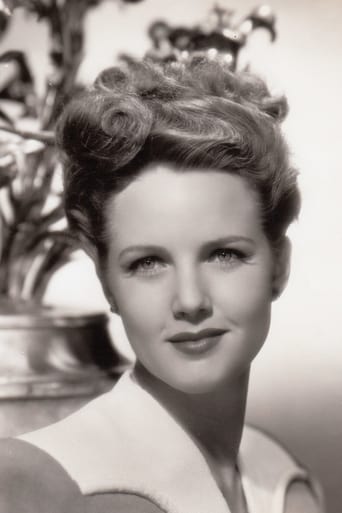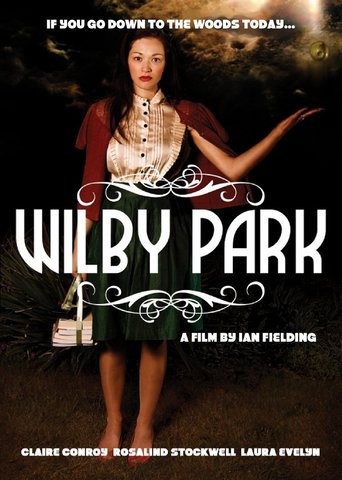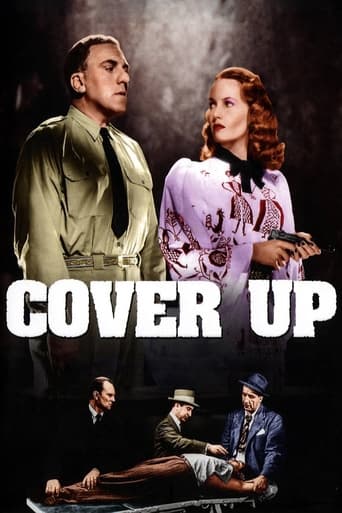
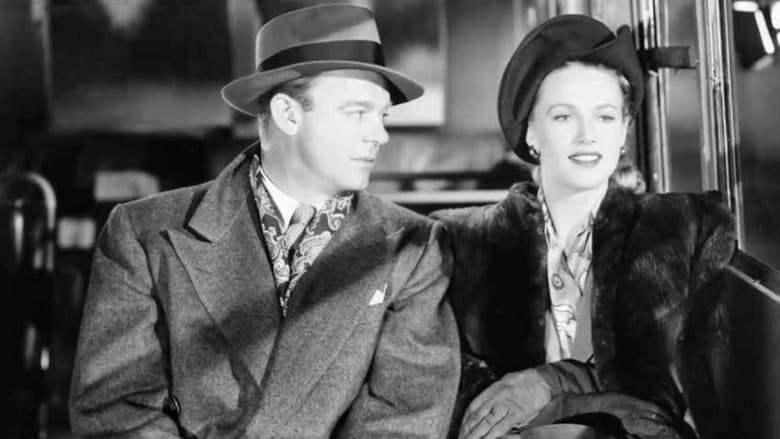
Cover Up (1949)
Insurance investigator Sam Donovan is looking into the apparent suicide of a man in a small Midwestern town. All clues leads him into suspecting murder. Unfortunately, no one wants to assist him with the case, including Sheriff Larry Best.
Watch Trailer
Cast
Similar titles
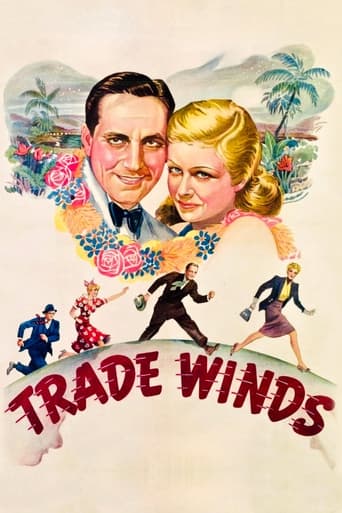
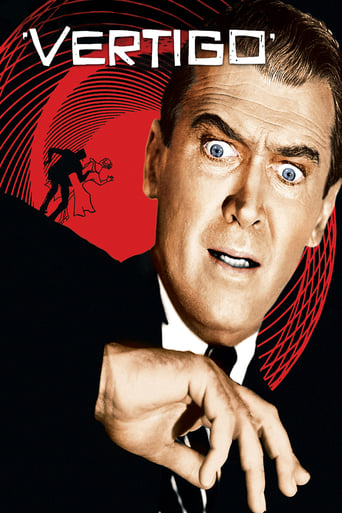
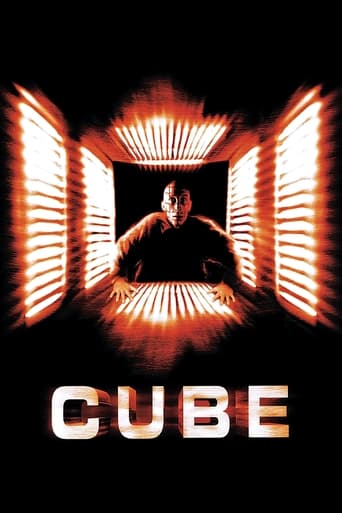


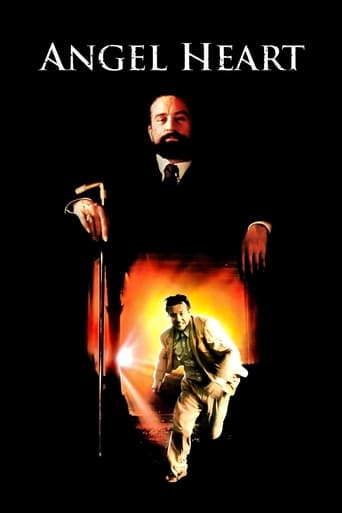
Reviews
A Disappointing Continuation
It's funny, it's tense, it features two great performances from two actors and the director expertly creates a web of odd tension where you actually don't know what is happening for the majority of the run time.
The plot isn't so bad, but the pace of storytelling is too slow which makes people bored. Certain moments are so obvious and unnecessary for the main plot. I would've fast-forwarded those moments if it was an online streaming. The ending looks like implying a sequel, not sure if this movie will get one
Exactly the movie you think it is, but not the movie you want it to be.
"Baby Face" director Alfred E. Green's provocative mystery "Cover-Up" lives up to its title. This deceptively bland movie concerns a homicide in a rural town, and everybody in the town hated the individual who was gunned down in his own home. An outsider who represents a large insurance company arrives, but he doesn't accept the questionable the story that everybody else buys. They believe the victim committed suicide. Nevertheless, the sheriff does his best to shield the real murderer from exposure for the crime. Initially, the hero sticks around to prove his theory about murder rather than the contrived charge of suicide. Eventually, however, the insurance man changes his point of view and adopts the perspective of the sheriff. Meantime, he encounters the girl of his dreams, and they fall in love. "Cover Up" received several negative reviews, but I think that these spectators have misjudged this modest but effective movie. Interestingly enough, one of the two scenarists, Jonathan Rix was actually leading man Dennis O'Keefe. "Highway Dragnet" scribe Jerome Odlum penned this offbeat melodrama that benefits from "Hitler Gang" lenser Ernest Lazlo's atmospheric cinematography.Chain-smoking Insurance Detective Sam Donaldson (Dennis O'Keefe of "Raw Deal") is dispatched by his company to investigate the apparent suicide of a policy holder, Roger Phillips, in a closely-knit small, Mid-western town. Sam discovers many provocative things about this suicide that don't add up and leads him to suspect Phillips didn't commit suicide. Instead, Sam concludes that the suicide was really murder. When the movie opens, we see a train pull into a railway depot and a fashionably attired woman, Anita Weatherby (Barbara Britton of "So Proudly We Hail") gets off it with Christmas packages piled high to her chin. Naturally, Anita cannot hold the load and drops some presents. Gallantly, Sam volunteers to help Anita, and the seeds of romance are sown. Sam is baffled when he learns that Phillips has already been buried; no coroner's report has been filed; and the bullet that killed him is missing. Furthermore, according to the undertaker, the body contained no powder burns from a gun having been discharged at close range. Eventually, cantankerous Marlowe County Sheriff Larry Best (William Bendix of "Detective Story") not only provides Sam with the bullet that he found at the scene of Phillips' death, but also that he states that a Luger was the kind of automatic pistol used to kill Phillips. Meanwhile, Sam's superior at the Insurance agency tells him to get to the bottom of the case. Before long, Sam learns that Anita's father, Stuart Weatherby (Art Baker of "The Beginning or The End"), had given the local town doctor a Luger that he brought back with him from World War I. Mistakenly enough, Sam suspects that Stuart committed the crime. Indeed, Sam has the local newspaper publish a false story to lure Stuart into showing up at the late doctor's house to incriminate himself. Stuart's housekeeper burns the newspaper with the fake article in it and then burns Weatherby's decades old beaver coat handed down to him by his own father. When the dead man was found, the murderer stood over him with a coat dripping with water. Sam believes that a forensic specialist will be able to link the water that dripped off the coat to Stuart's coat, but the housekeeper burns the venerable coat. This doesn't prevent Stuart from taking the bait and falling into Sam's trap. The big resolution scene reveals that Stuart didn't kill the policy holder. Instead, a doctor who died recently from a heart attack but who was held in high regard by the community was responsible for killing the man.William Bendix plays the suspicious sheriff, and we suspect that he may have been responsible for the crime. "Cover up" is a good movie, but it is far from conventional. The idea that a murderer could get away with a crime because his exposure as a murderer would ruin his reputation is an interesting concept.
I am no insurance expert, but I thought that in cases where someone killed themselves that their beneficiaries did not receive anything. So why would an insurance investigator, Sam Donovan (Dennis O'Keefe), investigate this in the first place? And, why would he try to prove it was a murder? I think this is a HUGE problem with the plot of "Cover Up"...unless I am mistaken.The story begins with Donovan arriving in town to do his investigation. Surprisingly, most everyone in town either avoids him or lies--and Sam is very tired of it. To make things worse, the Sheriff seems ambivalent when Sam's investigation shows that the man was murdered. If you can ignore the inconsistency of an insurance investigator trying to make his company pay out the biggest claim instead of the smallest, it is an interesting film. Not a great film but interesting and worth seeing despite its flaws.By the way, I wish the film had used a ballistics expert to consult, as the film made a couple mistakes I noticed. First, Sam fires a gun (to get a ballistics comparison of the bullet) and IMMEDIATELY picks up the slug with his bare hands. It would be super-hot--and you'd either want to wait a moment or use gloves. Second, one piece of evidence that Sam has that convinces him the dead guy was murdered was that the killer was left-handed. Well, I am a right hander in everything...but I shoot left. This is not too uncommon, actually, as you often shoot based on your dominant eye not your dominant hand.
Despite the title and Dennis O'Keefe as the star, this B film is not a film noir. It is about a small town in Middle America where everyone in the town seems to be trying to conspire to cover up a murder. Dennis O'Keefe arrives in town as an insurance investigator. He is there as a matter of routine because the company for which he works has provided life insurance for the deceased. The sum insured is mentioned as $20,000, and everyone speaks of it breathlessly, and it is hard to realize that in those days $20,000 really was a substantial amount of money. That says a lot about inflation over time. The man is said to have committed suicide. However, O'Keefe is very smart and he soon realizes that the man was murdered. His efforts to bring this to the attention of the local sheriff, played by William Bendix, meet with a stone wall. There is a double indemnity clause in the insurance policy which says that if the person is murdered the payout will be double. But when O'Keefe offers to pay the extra $20,000 to the niece of the murdered man, she refuses it, insisting that her uncle committed suicide. O'Keefe is baffled by this refusal of so much extra money. The murdered man turns out to have been 'a poison in his community', who was hated by everyone in town. In fact, everyone in town had a motive to murder him. It is a very good yarn in theory, but mystery and tension are sacrificed to other aims, namely to concentrate on the dilemma of O'Keefe's budding romance with a girl called Anita, played by Barbara Britton. The murdered man was killed with a 9 mm German Lugar. Both the sheriff and Anita's father have such Lugars. Things are looking very bad indeed, as one of them seems to be the killer. The other main aim of the film is to concentrate on the cozy, though currently unsettled, life of the small town. It is snowing and it is nearly Christmas. People are lighting up their trees and getting the turkeys ready for roasting, tying up their presents, and O'Keefe (who has no family of his own) gets involved in the festivities while he is at the same time carrying out an investigation which threatens many of those with whom he is associating. If the intention had been to make a film noir, a great deal more mystery and suspicion and conflict would have been created, and the film would be dark and moody. Instead, the film attempts to retain a cheerful air, which belies the tensions underneath. Barbara Britton smiles charmingly, O'Keefe is falling for her like a schoolboy, her father is genteel and reassuring, and only the sheriff appears truly suspicious, though even he has a twinkle in his eye and casts mischievous little smiles aside from time to time, which suggest that he is not a bad guy after all. No attempt is made by the director to suggest any real sense of threat or menace. Everybody is simply too goody-goody, and there are no obvious villains. Well, the ending has something to do with the season of the year, and it is by no means obvious, but I won't spoil things by discussing that. The catchline for the film is: 'a small town with big secrets'. That is certainly true, but don't expect a nail-biter. The suspense is so diluted in this film that it should rather be described as diverting than absorbing. As a result, Dennis O'Keefe is not as effective as usual, because he was best in films where things get really tough, and here he has to be Mr. Nice Guy who in between wooing his gal dabbles in proving and explaining a murder, and worrying whether his gal and her father are involved in it. In other words, the focus is on the romantic conflict rather than on whodunit. You could call this a 'soft noir', or perhaps a 'black marshmallow', since it aims to be tasty, chewy and sweet with a dusting of crime sprinkled over it for appearance's sake.
A good, economical little b movie, with a wonderful female lead , Britton, who is stunning and a straight faced male lead, O Keefe. Enough red herrings to keep one amused, as long as you are not looking for a classic.
